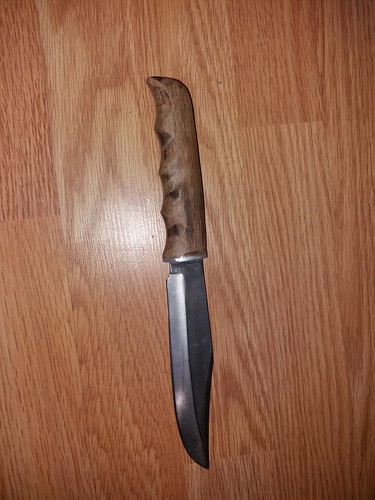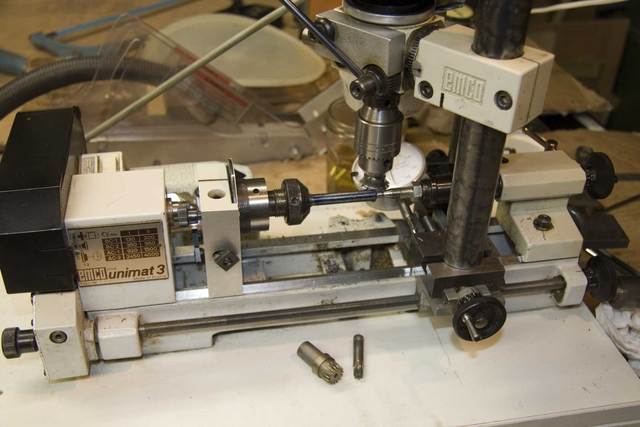It's been a while since I posted in this thread - the boy's still loving working with metal in school, and seems to have built an all-metal desk lamp from scratch since we finished that knife handle (we did make up our own beeswax polish as per advice, but I think we made it too thin, didn't really add much to the wood and then he started using it, so finish of the handle slipped down the list of priorities). I'll post a pic of the lamp as soon as he remembers to take one after half term.
Anyway, my garage is now pretty empty as I've moved my wood stuff elsewhere and he's on about getting a metal lathe in there. I know this is an incredibly vague question, but what's a good lathe for him/ us to start on? Something simple and safe (apparently the ones in school have a couple of guards that have to be in place before the lathe will work - is that standard?). I've only looked at the Axminster site (seemed pretty £££ to me, but I guess that's what metal lathes are?) so have little idea, and only this morning discovered the principle of how a metal lathe works by watching a video on youtube. So no idea, really - he clearly knows more than me.
Do modern/ new lathes add much safety or ease over older ones? Where should I start looking? Money's an issue, in that I don't want to spend more than I have to - but at the same time I don't want something we'll have to do much (/any) work to get going properly.
Any thoughts very much appreciated.
Chris


































